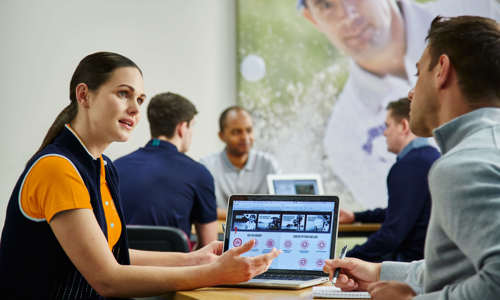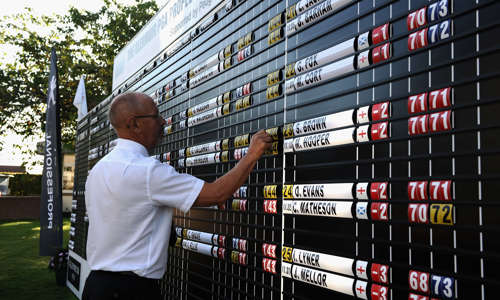I am one of three brothers and my dad used to say, ‘I want one of you at least to join the Army’. I joined the Gurkhas at the age of 19, in 1999. Simply, I fulfilled my dad’s dream, and I was successful. I came to the UK, which is a completely different environment than where I grew up, and it took a while to get adjusted and adapt. But I travelled around with the Gurkhas and with the British Army and I had a very good time, I really enjoyed visiting many places around the world. I had a good career in the Army.
What challenges did you face during your rehabilitation?
The next morning, my Commanding Officer and Gurkha Major came in and stood side-by-side, I just felt ashamed. I cried, I just felt that I let them down and the 13 boys that I left in my team. They looked to me like a father figure.
After my injury, even going to the toilet was hard, I couldn't brush my teeth, I couldn't shower myself and couldn't transfer on to a wheelchair. Very little things were very challenging. It was a struggle, not just physically but mentally was the hardest part. And not just for me. It took a toll on my family – my sons can’t play football with me. So it was very, very hard. You go to the rehabilitation centre, then you come back home. You have nothing to do. Your job is gone. So I was just drinking too much, just to control my pain and emotion. Then I thought: ‘No, if I’m going this way, I’m going to die soon. If I die, that’s fine, but my family will suffer from that. So, simply, I want to life live.’
How has sport helped you?
I always wanted to play golf, but I didn't know where to start. I had never even touched a club. And I didn't have legs – that makes it tricky. I found On Course Foundation – a charity that helps rehabilitate soldiers and veterans through golf – and there were guys playing without legs. I thought, ‘if they can do it, I think I can do it’.
So golf played a major part in my rehabilitation, mainly just getting my confidence back. It was somewhere I could go and meet like-minded people and just enjoy, and forget all the pain and sufferings.
But I also did other sports and adventures as well – climbing, indoor climbing, archery, basketball, curling, cycling, kayaking, canoeing, rafting, skiing – which helped me to be where I am and what I'm doing now.
When I went to Nepal for the first time after getting disabled, there was no public disabled toilet, there are no facilities or access. So there are so many things I think we need to do and, after spending all my adulthood in the UK and serving for the UK, this is the way I can serve my motherland and help my fellow countrymen.
For me, those things are bigger than climbing Everest. Yes, it's my dream that I want to climb it but I also want to change those perceptions so people can have more freedom, more rights, and the courage to go and fight for their rights and for their dreams. That's what I really want to make happen through this climb.
What challenges do you expect to face during the expedition and how is training going?
It is a two-month project. Initially, we need to go there and acclimatise, then wait for a window to go up the mountain and come down. I'm three times slower than normal people, and I burn three times more energy. My biggest challenge is covering long distance. Normally people use four camps but I’m putting in six, and we’ve said as many as 10, to make sure I can cover those distances.
Training is so far so good. I have already climbed a few mountains and I go to the gym and do cardiovascular - making sure my lungs are healthy, ready for a mountain in low oxygen – and strength and conditioning and swimming. I also have a chamber coming for my bed, so I can sleep like it’s 7,000m.
Many people don’t believe that I can climb Everest as nobody has attempted it so far. But nothing's impossible. We can do anything, we just need to adapt, and I will adapt and get up there.
You are crowdfunding to raise £300,000 for this expedition – what will this fund?
The funds pay for prosthetics – I have to have special legs and making those legs is not cheap. I need different lengths for different terrain and designed with crampons to dig holes in the ice. I’m also trialling a heated circuit to make sure I don’t get frostbite. We also need to pay for cutting-edge equipment for me and my team, food, tents, sleeping bags, oxygen tanks. And they are very expensive. If I don’t raise all the funds, then I will possibly have to sell my home. Raising funds is harder than climbing the mountain – it is the biggest challenge.
What do you think you have learned from your experiences?
Anything is possible. If we set our mind, our body follows. Life is all about adaptation, and nothing's impossible as long as we adapt, work hard and have discipline and focus. Life will be up and down but whatever happens, we just have to keep doing what we love to do and just enjoy it.
Disabled people don’t have to be poor, miserable and live on benefits. Disabled people also can live a successful, happy and meaningful life.
I lost my legs, but I have no regrets. If I wasn’t there, somebody else would have been injured. The best thing that happened after my injury was I was able to recognise myself and try to live as someone. And, whatever happens, I’m going to try to make the rest of my life as meaningful as possible and help other people.
To donate, CLICK HERE
GBQ is a benefit of the Business Management Group. Exclusive to those who sign up to BMG Plus and BMG Premium options, GBQ is available both digitally via the members' area of The PGA website and is mailed out each quarter.
CLICK HERE to find out how you can join The PGA's Business Management Group.




































